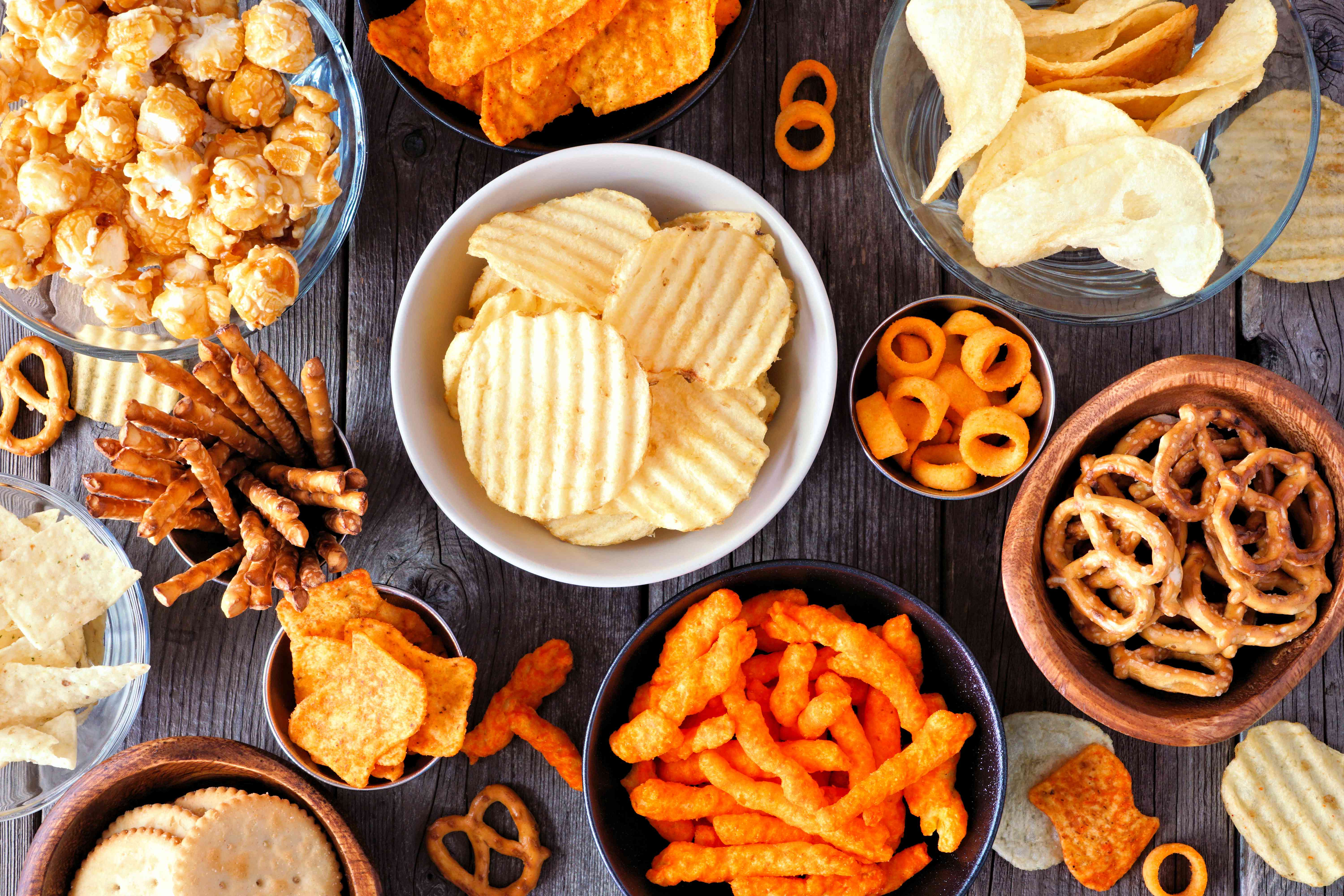How Ultra-Processed Foods Can Hurt Your Muscle Health—Even If You Work Out

A new study found that a diet high in ultra-processed foods may increase the amount of fat in muscle, which can raise the risk of osteoarthritis and other chronic conditions

jenifoto / Getty Images
- A new study found a link between a diet filled with ultra-processed foods and having more fat within muscles.
- Ultra-processed foods are a broad category of items that generally contain more additives.
- Having more intramuscular fat can impact movement and mobility, and raise the risk of developing chronic diseases like osteoarthritis.
A diet rich in ultra-processed foods has been linked with a host of health issues, including the risk of metabolic syndrome, type 2 diabetes, and certain cancers. Now, a new study has found that routinely consuming these items could affect another aspect of health: muscle quality.
The research, presented Dec. 4 at the Radiological Society of North America annual meeting, specifically found that people who ate more ultra-processed foods—a broad category of items including sodas, processed meats, snacks, and frozen meals—had more fat within their thigh muscles.
Healthy muscle contains a small amount of fat, but Sarah Alsing, MS, RD, a registered sports dietitian, told Health that having too much fat within muscles can negatively affect movement and overall health. “Increases in intramuscular fat are associated with loss of strength and mobility, as well as an increased risk for chronic diseases,” she said.
Those diseases include type 2 diabetes, obesity, and osteoarthritis, the most common form of arthritis.
How Ultra-Processed Foods Affect Muscles
The study was motivated by previous research finding an association between “a more ‘Western’ diet style” and poor knee health, according to study author Zehra Akkaya, MD, an academic radiologist at Turkey’s Ankara University and researcher at the University of California San Francisco.
The link between the two prompted Akkaya and her colleagues, who study knee osteoarthritis and how local body fat and tissue changes influence it, to “take a closer look at the ‘Western’ diet style, which is highly dominated by ultra-processed foods,” she told Health.
While there's no set definition of ultra-processed foods, they generally include foods that have had ingredients like sugar, salt, and preservatives added to them to extend shelf life and enhance palatability.
The team examined data from 666 people who participated in the Osteoarthritis Initiative, a multi-center, long-term study focused on knee osteoarthritis. Participants were at risk for developing knee OA but had no knee pain or radiological signs of knee OA when the study began. Their mean body mass index was 27, considered “overweight.”
Participants filled out food frequency questionnaires and received MRIs to assess the quality of thigh muscles, which can influence the development of knee osteoarthritis. Researchers specifically looked at intramuscular fat composition, which refers to the “fat in between muscle fibers or bundles of fibers within the boundaries of a given muscle anatomy,” Akkaya explained.
After analyzing the data, the scientists found a significant relationship between a higher proportion of ultra-processed food intake and poorer thigh muscle quality, as evidenced by the MRI images. The more ultra-processed foods a person ate, the higher the Goutallier grade, a measure of fatty tissue relative to healthy muscle tissue.
The link between ultra-processed food intake and fattier muscles was independent of participant body mass index, caloric intake, age, gender, race, physical activity level, and some sociodemographic features.
More Research Is Needed
Like all observational research, the study can only show associations but not causation.
The true relationship between ultra-processed food intake and thigh intramuscular fat could be due to unmeasured factors, said William F. Harvey, MD, MSc, interim chief of rheumatology at Tufts Medical Center. “For example, though the analysis was adjusted for caloric intake, it is possible that a diabetes diagnosis or consumption of high amounts of saturated or other fat, rather than just processed food, is what caused the increased intramuscular fat,” Harvey told Health.
Other drawbacks included the study’s reliance on the Goutallier grading system, which Akkaya mentioned isn’t as robust as quantitative methods of measuring muscle fattiness, as well as having participants report food intake. “People are notoriously poor at accurately reporting that kind of data,” Harvey said.
Experts said that future studies could focus on whether cutting down on ultra-processed food intake could reduce already-present intramuscular fat and how extra fat in the muscle affects health, particularly osteoarthritis.
“Intramuscular fat has been associated with the development or progression of knee OA in several studies, but the exact mechanism is not known,” Harvey said.
Maintaining Healthy Muscles
While limiting ultra-processed food intake may be a great place to start to prevent intramuscular fat development, it’s just one avenue. “Other data suggests that exercise and strength training generates lean muscle, and individuals who get sufficient exercise are more likely to reduce intramuscular fat,” Harvey said.
Additionally, embracing a generally healthy diet will not only support overall health but may also help control intramuscular fat development.
“Focus on eating foods that have minimal added sugars and provide protein, fiber, and healthy natural fat sources,” Alsing offered. These include a variety of fruits, vegetables, whole grains, nuts, seeds, lean proteins, and sources of healthy fat like olives and avocados.
 Jani Hall
Jani Hall is a news editor for Health with a background in health, science, and investigative reporting. Previously, she wrote full time about parenting issues for the app Parent Lab. Before that, she worked as a reporter for National Geographic covering wildlife crime and exploitation.
learn more
Jani Hall
Jani Hall is a news editor for Health with a background in health, science, and investigative reporting. Previously, she wrote full time about parenting issues for the app Parent Lab. Before that, she worked as a reporter for National Geographic covering wildlife crime and exploitation.
learn more
This story originally appeared on: Health News - Author:Christina Manian, RDN


















